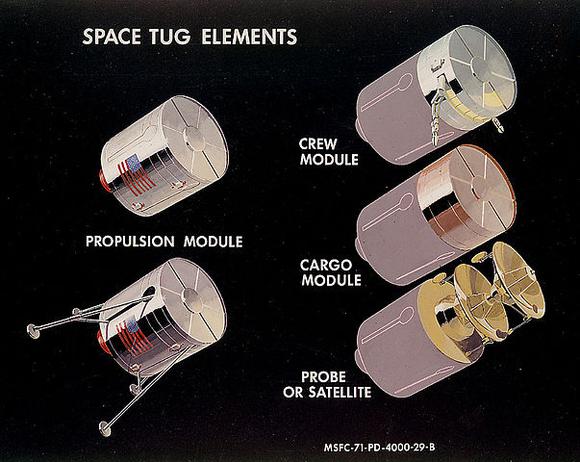NASA rejects Lockheed Martin orbital cargo delivery project as too complicated and expensive

NASA 's Space Towing Project rejected the Lockheed Martin project , which was bidding on the Commercial Resupply Services 2 (CRS-2) contract for cargo delivery to the ISS.
The amount of the contract is $ 14 billion and is designed to work from 2018 to 2024. According to rumors, the new contract was shared among themselves by Boeing, Sierra Nevada Corporation, SpaceX and Orbital ATK (successor to Orbital Sciences).
The previous contract worth $ 6.2 billion, and valid until 2017, was divided by two companies, Orbital Sciences and SpaceX. Last time, Lockheed filed its application in the same way and was also rejected.
The reason, apparently, lies in an overly complex and expensive approach to solving a relatively simple task. Lockheed offers a three-part solution: Jupiter reusable spacecraft, Exoliner cargo container and robotic manipulator for working in space. The Jupiter, which carries the Exoliner, is launched into orbit, after which Jupiter transfers the container to the ISS with the help of a robot arm.
The goal of Lockheed, which offered a custom project, was to obtain funding from NASA to develop a reusable spacecraft and a towing vehicle. It was assumed that after the flights, the Jupiter will remain in orbit and will do other work - for example, to repair or collapse failed satellites from orbit. But for some reason, the space agency chose to give the contract to those who would do the job easier and cheaper.
True, there are questions regarding the cost of the contract. The essence of concluding contracts with third-party companies is to save budget money by giving the project to the company that will make it cheaper. Within the framework of the program, it is planned to deliver about 20 tons of cargo into orbit within seven years. This is approximately 280,000 pounds. At the same time, NASA advertised the delivery of goods into orbit "at $ 10,000 per pound." A simple calculation says that in this case the cost of the seven-year program should have been $ 2.8 billion - but not $ 14.
Orbital Sciences Corporation ( OSC ) is an American company specializing in the production of spacecraft and launch vehicles. The company is actively involved in the provision of international launch services. A deal was signed last yearbetween OSC and the Russian NPO Energomash for the purchase of 60 Russian rocket engines in the amount of $ 1 billion.
